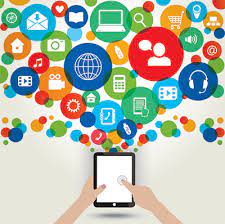What is media literacy?
Having media literacy is to have the capability to recognize and understand the content in messages across various multimedia platforms. This also has to do with choosing the right multimedia medium in delivering an impact to an intended audience (i.e., using PowerPoint in a business pitch meeting to convey your message).
Why is it important?
Media literacy is important because it enables individuals to navigate through the overwhelming amount of information that is being presented and locate what sources are reliable and can be trusted. This is a skill that everyone should have in order to stop different forms of misinformation from proliferating across the public.
Why is it dismissed?
Media literacy may be dismissed due to personal biases as many people tend to gravitate towards sources of information that align with their own thoughts for that feeling of self-gratification that comes with being ‘right’. Individuals may also dismiss media literacy because they may view it as being unnecessary because of their current inability to distinguish between reliable and unreliable forms of information. Essentially they can’t recognize it’s importance because they haven’t been properly educated on the matter.
Why should you aim for varied views but the factual consensus in your PLN?
It’s important to maintain a factual consensus in your PLN because the goal of a PLN is not to argue what is and isn’t true but have meaningful discussions around what is true/what makes something true. You should aim for varied views as well because the truth can look different through others perspectives and in order to get the full picture you have to consider other’s views on a matter.
References:
Miller, Jesse. (2021). EDCI 338-MEDIA LITERACY with JULIE SMITH. YouTube. https://www.youtube.com/watch?v=57r3-aEnci0&ab_channel=MILLER
Trilling, B & Fadel, C. (2012). Digital Literacy Skills. Media Literacy Chapter 4, pp. 66. https://learning-oreilly-com.ezproxy.library.uvic.ca/library/view/21st-century-skills/9780470475386/fade_9780470475386_oeb_c04_r1.html#h2


Recent Comments